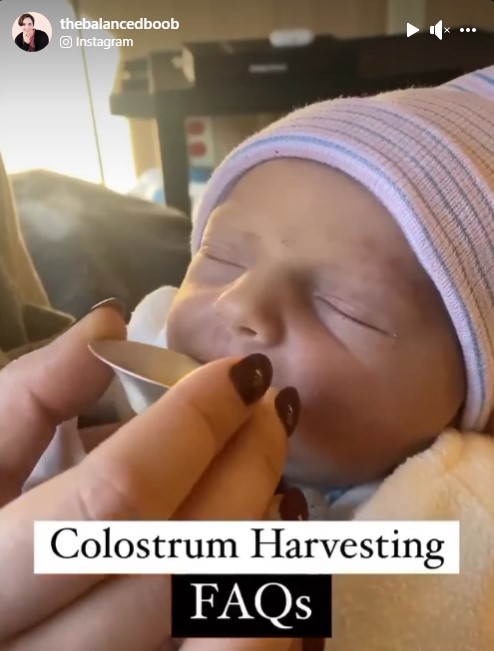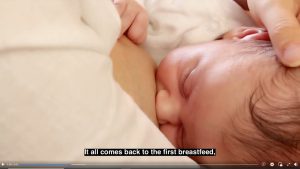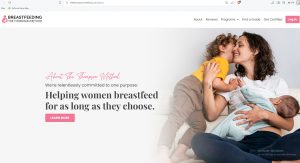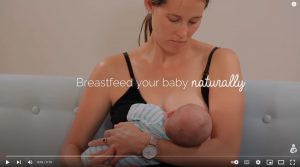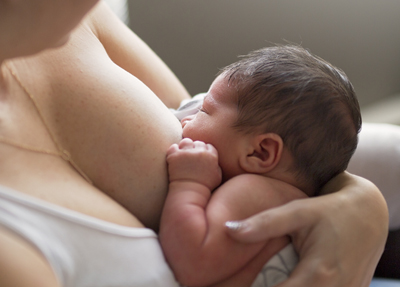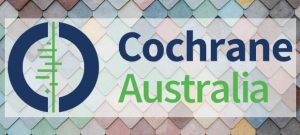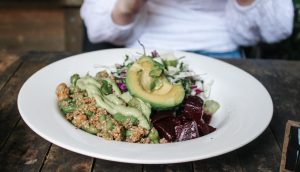Breastfeeding - a collection of learning & amazing facts!
Just like positive birth, successful breastfeeding starts with getting well educated BEFORE your baby's birth!
The success and continuation of breastfeeding is greatly impacted by what happens during the birth - induction, interventions, epidural, pain-relief drugs, and the bonding time immediately after birth!
Be really educated and understand the steps to take to prepare for and facilitate successful pain-free, ongoing breastfeeding.
On this page:
WATCH a Newby crawl to initiate Breastfeeding!
COLOSTRUM a quick summary of what you need to know.
GET HELP: Local Breastfeeding / Lactation Consultants
TEN TIPS to make breastfeeding life easier
VIDEO How to Breastfeed Painfree - The Thompson Method
IS IT WORTH THE EFFORT? - breastfeeding research
JAW, FACE & TEETH DEVELOPMENT - breast v bottle
FOOD for breastfeeding mothers...

1. Newborns can instinctively crawl to the breast to feed!
The Newborn Breast Crawl. How amazing! Is there any greater evidence to show that breast milk is the number one baby food whenever possible? This video is in Spanish, but it needs no translation!
Watch how a newborn baby can 'crawl' to the mother's breast, navigating mostly by smell, and instinctively self-attach and feed.
Remember that burst of adrenaline/noradrenaline in 'transition'; that also helped to peak baby's sense of smell!
Here's a great article (the name says a lot) that describes what the breast crawl is all about (part of mammal instinctive survival behaviour) and how it can improve the success of breastfeeding if allowed to occur naturally! "Are hospitals setting mothers up to fail at breastfeeding?"
2. Colostrum collection may help overcome challenges after birth!
Colostrum is the thick, yellow first milk produced in the breasts for your new-born baby (sometimes as early as 16 weeks of pregnancy), and it is often possible to hand express colostrum after 37 weeks to collect and store safely in case it is needed after birth. In the first days of breastfeeding, before the breastmilk is produced, it is colostrum that your baby will be receiving with all its nourishment and immune-protective components.
In the event of C/S, baby blood sugar issues, jaundice, mother-baby separation, breastfeeding attachment issues and more, having a ready supply of rich, nourishing, immune-promoting colostrum can help avoid any suggestion of supplementation with formula. This video from The Balanced Boob is a great, quick summary of how and why colostrum may be collected and used.
Find more information here at the Australian Breastfeeding Association page on colostrum.
The Thompson Method provides evidence-based education, gentle guidance, and 24/7 support so women can breastfeed full of confidence and painfree. After spending decades guiding women through labour and birth as a midwife, Dr Robyn made a curious observation: Women who gave birth..at home had significantly better breastfeeding outcomes than those who gave birth in hospital. Dr Robyn made it her mission to find out why... and was awarded the world's first PhD in nipple trauma. Her seven years of PhD research became the basis for The Thompson Method, and her online programs have helped tens of thousands of women prevent and overcome common breastfeeding challenges. Her program is HIGHLY RECOMMENDED, and there is a fantastic online course that is truly worth the small investment. Get educated and prepare to breastfeed BEFORE you birth your baby.
Australian Breastfeeding Association has been around a long time, and has lots of wonderful people in the field to help mothers with breastfeeding.
Birth Journey
Lois Wattis is a Certified Midwife, Lactation Consultant based on the Sunshine Coast. She considers every mother and baby as a unique pair. As a Midwife Lois truly understands the significance of your personal journey of how you arrived together. Breastfeeding is not a “one size fits all” experience, and there is no one-way that is right for every combination. Lois will listen, watch, guide, and support you as you progress towards achieving your own breastfeeding and mothering goals. Lois has an EBook available here too - New Baby 101.
The Milk Meg
Meg Nagle is an International Board Certified Lactation Consultant in private practice. She is also a keen blogger with a large international following, an author, speaker and attachment parenting specialist. Meg is available to help with all things breastfeeding, sleep and attachment parenting. Phone 0423 949 252
Breast Feeding Support Sunny Coast
Cath Williams is an international Board Certified Lactation Consultant, in private practice caring for families for 18 years as they negotiate the early days of baby feeding. He has a 44 year history of nursing with 39 years in midwifery. Click here to link to Cath's contact form and send a message.
The Milky Days
Sarah Elphick is an International Board Certified Lactation Consultant, Midwife and Educator located on the beautiful Sunshine Coast. Sarah has worked with mothers and babies for over 13 years. Most importantly, she's a wife and proud mamma of two amazing, breastfed children! Based at Mountain Creek. See Sarah's breastfeeding tips here. Click here for contact form. Mobile 0423 708 729
Milk Supply Noosa
Owned and operated by Kelly Rechtin, Board Certified Lactation Consultant (IBCLC®) and Maternity and Child Health Registered Nurse (Grad. Cert. MCFHN, R.N., B.S.N.). Kelly has over 15 years experience in a variety of hospital, clinic and private practice settings. Click to link to their contact form on their website.
Coast Life Midwifery
Lactation Consultant can provide home visits or clinic appointments, between 8am and 6pm 7 days a week. Phone 0467 580 902 .
4. Ten Sound Tips:
- BEFORE you have your baby, get really well informed! The birth and the immediate hours after the birth will have a BIG impact on how well breast-feeding is established, and there is a lot you can learn in advance that will set you up for breastfeeding success by making informed choices in birth. See this important video about the first feeding experience after birth.
- LEARN how to avoid problems before they arise.... See this wonderful website The Thompson Method of Breastfeeding for LOADS of information and support.
- Read this great article "The Real Formula for Success" from Maternal Instincts; it may help you make important decisions and be empowered to stick to them as long as possible.
- It isn't always easy at first, but it usually becomes easy with practise and sometimes assistance, and the effort is always worth it, short-term and long-term. If you need help, please reach out and find help.
- Soften the breast if it is engorged (especially in early days), with a warm compress. This makes room for baby to take enough breast into the mouth and latch well. Imagine trying to latch onto a hard bowling ball!
- Be really well supported, with pillows/cushions etc around you in your chair, and under the new-born baby if on your lap. This way you can rest your shoulders and relax completely.
- Get a good latch! The secret to comfortable, effective feeding! It should never be painful! See the video below or ask your lactation expert to help here.
- Visualise your milk supply coming in! When baby latches, take a slow relaxation breath, close your eyes and 'see' and 'feel the tingle' of your milk coming into the milk ducts. This can really helps to hasten the let-down and satisfy your hungry baby sooner!
- Drink lots of water! And when you sit down to feed, make sure you have water with you because you WILL feel thirsty, and you are producing lots of milk for baby and need to keep up your water supply!
- Have the phone with you, just in case it rings: if the phone rings and you can't reach it, it is hard to stay relaxed!! BUT, try not to make calls as your baby feeds; use the time to connect and engage with your baby!
- Wash with water only and not soap on your nipples/breasts; this helps prevent drying out and cracking nipples!
How to breastfeed: naturally
This wonderful step-by-step 5 minute video on breastfeeding is from The Thompson Method of Breastfeeding. This method of feeding is based on many years of experience, observation, research and proven results, by Doctor Robyn Thompson; it is well-proven and highly recommended. Learn more about this method at TheThompson Method. There is also a brilliant online course and 24/7 support available through Thompson Method Breastfeeding Course.
NOTE: You are TWICE as likely to experience nipple pain and damage, if you hold your baby by the head, neck or shoulders; this includes the 'cross-cradle' technique commonly taught, and forceful pushing baby onto a squeezed breast. If feeding is painful, it won't just become better with time!
6. Why Breastfeed? Is it really worth the effort?
Some wise words from Cochrane Australia
"A recent landmark Lancet Series on Breastfeeding concluded that ‘breastmilk makes the world healthier, smarter, and more equal’. While few would disagree with this assessment or the evidence that underpins it, consensus about how to support and achieve a significant increase in breastfeeding around the world is harder to come by. Despite breastfeeding being a recognised global health priority, only around 37 per cent of babies under six months are exclusively breastfed worldwide. Rates in many countries, especially high-income nations, are much lower than this... Here in Australia, Department of Health figures suggest around 39 per cent of babies are exclusively breastfed to around three months; and about 15 per cent are exclusively breastfed to six months."
Why are so few babies exclusively breast-fed? Why should we change this? How can we change this? This collection of articles explores all the above.
An extract from "The Politics of Breastfeeding" by Gabrielle Palmer
"If a multinational company developed a product that was a nutritionally balanced and delicious food, a wonder drug that both prevented and treated disease, cost almost nothing to produce and could be delivered in quantities controlled by the consumers' needs, the very announcement of their find would send their shares rocketing to the top of the stock market. The scientists who developed the product would win prizes and the wealth and influence of everyone involved would increase dramatically. Women have been producing such a miraculous substance, breastmilk, since the beginning of human existence."
Breastfeeding in the 21st Century
Summary: Our meta-analyses indicate protection against child infections and malocclusion, increases in intelligence, and probable reductions in overweight and diabetes....For nursing women, breastfeeding gave protection against breast cancer and it improved birth spacing, and it might also protect against ovarian cancer and type 2 diabetes. The scaling up of breastfeeding to a near universal level could prevent 823 000 annual deaths in children younger than 5 years and 20 000 annual deaths from breast cancer. Recent epidemiological and biological findings from during the past decade expand on the known benefits of breastfeeding for women and children, whether they are rich or poor.
Enabling Breastfeeding for Mothers and Babies
"Not only is breastfeeding a fundamentally important human behaviour that strengthens attachment and psychological outcomes, but the use of breastmilk substitutes – either exclusively or partially – has substantive short, medium and long-term impact on survival, health and wellbeing for babies and women. The use of breastmilk substitutes weakens infants’ immune systems, and impairs their cognitive development, behaviour, and appetite regulation, and it increases women’s risk of developing breast cancer, and probably also ovarian cancer and Type 2 diabetes."
Breastfeeding & the Micro-biome
Breast feeding is an amazing multi-faceted relationship for your baby! The relationship between breast-feeding, breast-milk, skin-on-skin, healthy gut bacteria (micro-biome) and the immune system is so very important and really only beginning to be understood!
- Did you know there is an exchange between the baby and the nipple, that allows your body to produce exactly what your baby needs on a day-by-day basis?
- Did you know that first breast milk contains sugars indigestable to your baby, that specifically feed and grow the healthy bacterial colonies the baby contracted through the birth canal?
- Did you know that through this bacteria promotion, breast-feeding provides the basis of the baby's immune system foundation and development?
Breastfeeding & the Micro-biome
If you want to really understand this very important subject for you and your baby, I'd recommend you visit THE MICROBIRTH SCHOOL and either watch the brilliant movie "Microbirth" for $4, or even join their Free Masterclass Webinar. This 50 min webinar “Understanding The Infant Microbiome” is available to watch online each month and the language is really logical and easily understood (AND, if you're a professional you can earn free CE credits!).
This is the science that strongly supports vaginal birth (when possible), immediate skin-to-skin contact and exclusive breastfeeding. It’s 100% FREE!
Breastfeeding & baby's teeth and facial development
How Breastfeeding Helps Create Straight Teeth This article, and others linked from it, describe the importance of breastfeeding in relation to the baby's oral development and facial growth! The natural breastfeeding sucking action strengthens tongue and facial muscles, promoting proper tongue posture which facilitates postural muscle development. It also promotes jaw movement and development which greatly impacts facial growth and shape; and helps to facilitate nasal breathing instead of mouth breathing. Many parents have looked back from the midst of expensive orthodental programs and wished they'd known more back in the days of feeding and pacifiers.
Can food you eat upset baby's tummy?
There is a lot of information available about what breast-feeding mothers can and can't eat! It is normal for babies to have fussy periods a couple of times a day, and most mothers can continue to eat healthy balanced diets without fear of upsetting their babes. Occasionally, babies are sensitive to some foods - i.e. mild allergic sensitivities - but this is rare. Even in cases of sensitivities, breastfeeding is still recommended. Here is one article that give practical advice to test/eliminate some foods that you suspect may be causing your baby to be squirmy!
This article by Australian Breastfeeding Association provides really good insight into lactose intolerance and how these babies are best nourished.
Food to Increase Breastmilk Supply
The most important way to increase supply is to increase demand, especially allowing the new-born baby to feed at least 7 times in a 24 hour period to get the milk-production hormones really activated.
There are many sources of information available, including this good one at BellyBelly. Foods that might help increase milk supply are brewers yeast, barley, oats, leafy greens, brown rice, asparagus, sprouts, salmon, apricots, sardines, eggs, sweet potatoes, sesame seeds. Herbs like fenugreek seed, blessed thistle and fennel may help but are better prescribed by a naturopath, as herbal tea form or specific prescriptive herbs. A couple of experts on the Sunshine Coast who specialise in women's health are Karen McEnroy at Noosa/Cooroy and Kerri Abbot at Buderim.

